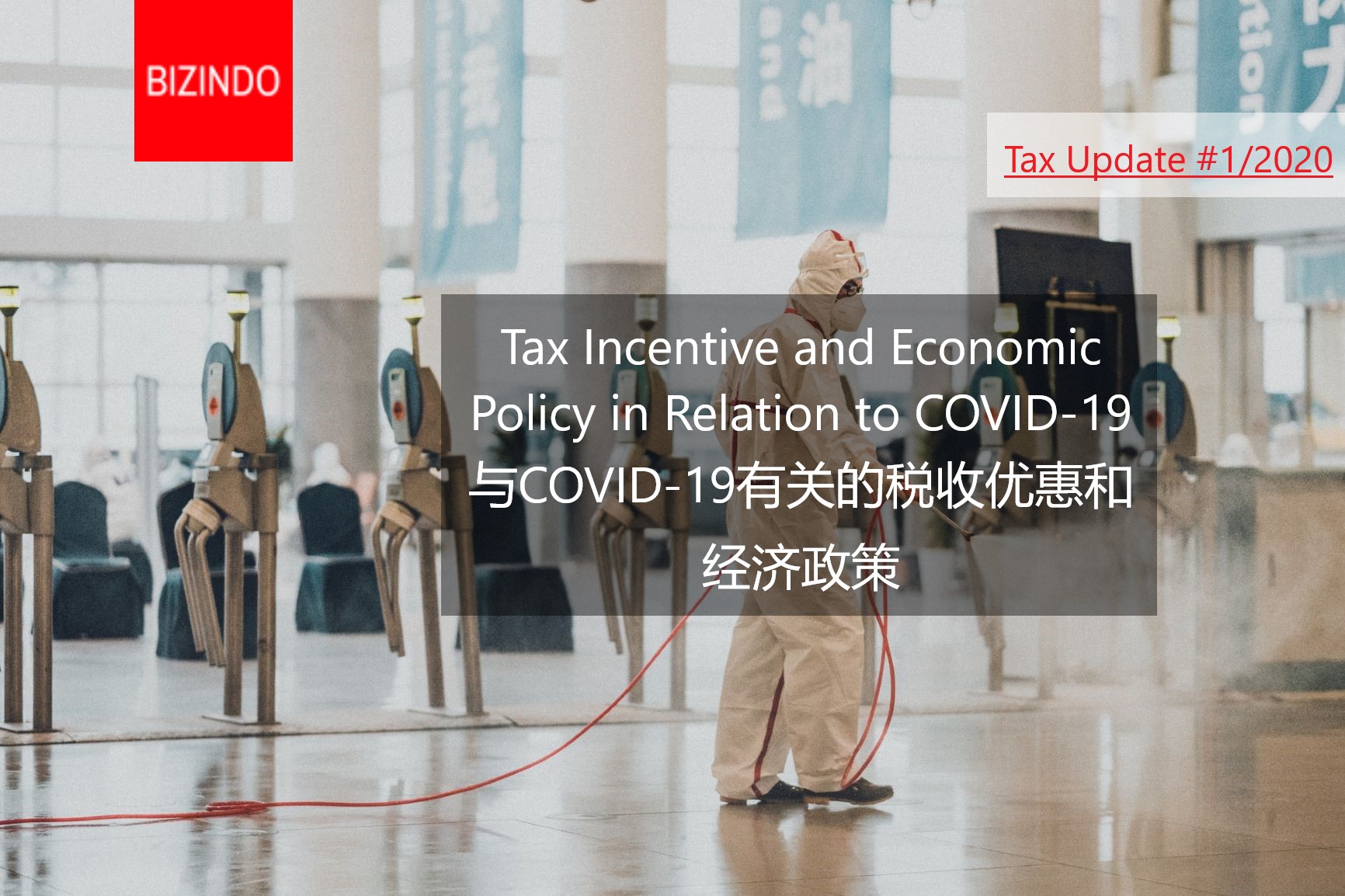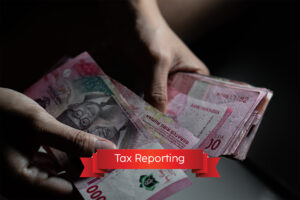Tax Incentives in Relation to COVID-19
The COVID-19 pandemic has been declared as a national disaster that has impacted the economic stability and productivity for certain sectors in Indonesia. The government has deemed it necessary to provide relief to those operating in these sectors. In light of this, the Minister of Finance (MoF) has issued MoF Regulation No.23/PMK.03/2020 (PMK-23), which will be effective from 1 April 2020.
PMK-23 provides a number of tax incentives for companies and employees operating in the designated sectors, as set out below.
The government will bear the cost of Article 21 Employee Income Tax for the months of April – September 2020. The cirterias:
- Receive income from an employer who: (a) has a Business Classification (Klasifikasi Lapangan Usaha/KLU) stated in the 2018 Corporate Income Tax Return (CITR) that is among those listed in PMK-23; or (b) is declared as a company granted with Import Facility for Export Purposes (Kemudahan Impor Tujuan Ekspor/KITE);
- Have a Tax ID number; and
- Receive an annualised regular income not exceeding IDR 200 million
(approximately Rp 16.7 million per month).
Procedure to obtain this incentive:
the employer must submit a notification to the Indonesian Tax Office (ITO) where the taxpayer is registered. If the tax authorities have a different view than the taxpayer (about eligibility), theymust issue a rejection within five working days.
Article 22 Income Tax on Imports can be exempted for the following companies:
- Those who have a KLU stated in the 2018 CITR that is among those listed in the PMK-23; or
- Those who have been declared as a company granted with KITE. The exemption is granted in the form of Tax Exemption Letter (Surat Keterangan Bebas/SKB) for which an application must be submitted to the ITO where the taxpayer is registered. The ITO must issue either an approval or rejection within three (3) working days.
Procedure to obtain this incentive:
Fill the application form and valid from the issuance of SKB until 30 September 2020.
The government grants a 30% reduction in the Article 25 Income Tax monthly instalment amount for the following taxpayers:
- Those who have a KLU stated in the 2018 CITR that is among those listed in the Attachment F of PMK-23; or
- Those who have been declared as a company granted with KITE.
Procedure to obtain this incentive:
The taxpayer must submit a notification where the taxpayer is
registered. The ITO must issue a rejection within five working days, if they do not agree.
The government will automatically consider the following taxpayers as lowrisk and provide a preliminary VAT refund facility (previously these types of taxpayers had to apply to be considered low risk for this purpose):
- Those who have a KLU stated in the 2018 CITR that is among those
listed in PMK-23; or - Those who have been declared as a company granted with KITE.
Taxpayers meeting the above criteria do not need to submit an application. Moreover, the Directorate General of Taxation (DGT) does not need to declare the taxpayer as low-risk as long as the KLU or KITE status is valid when the refund request is submitted.
This facility is valid for VAT returns (including amendments) for the fiscal periods of April to September 2020 that are submitted by 31 October 2020 at the latest.
Please feel free to consult us whether your company is among those entitle to get the above incentives, email: info@bizindo.com.
Economic Policies in response to COVID-19
On 31 March 2020, Government Regulation in Lieu of Law No.1 Year 2020 (“Perppu-1”) was issued. Perppu-1 is intended to help secure national economic stability during the COVID-19 pandemic. Perppu-1 governs new economic policy in the areas of taxation, government spending, and financing.
- The CIT rate will be gradually reduced from the current rate of 25% to 22% for fiscal year 2020–2021 and to 20% starting fiscal year 2022.
- The CIT rate for Limited Liability Companies with at least 40% of their paid-in shares listed on the Indonesia Stock Exchange and meet certain requirements, would be reduced by a further 3% (i.e. the CIT rate will become 19% for fiscal year 2020–2021 and 17% starting fiscal year 2022). The requirements will be further regulated under a Government Regulation.
- Value-Added Tax (VAT)
Utilisation of foreign intangible goods or services in Indonesia’s Customs Area through e-commerce system will be subject to Indonesian VAT and follow the prevailing provisions in the VAT Law. VAT collection, payment, and reporting is to be conducted by foreign sellers, foreign service providers, or foreign e-commerce marketplace (collectively referred to as “foreign e-commerce players”) and/or domestic marketplace as appointed by the Ministry of Finance (“MoF”). The collection, payment, and reporting mechanism will be governed by MoF. Marketplace is defined as business players providing electronic communication platform to be used in e-commerce, while foreign sellers or service providers are defined as individuals or companies residing or domiciled outside of Indonesia which carry out transactions with domestic party in Indonesia. - Income Tax or Electronic Transaction Tax
Foreign e-commerce players with a “significant economic presence” in Indonesia can be deemed as having a Permanent Establishment (“PE”) in Indonesia. If a PE cannot be deemed under the existing rules of an applicable Tax Treaty, affected e-commerce players will be subject to an Electronic Transaction Tax (“ETT”). ETT will be imposed
on direct sales or sales through the marketplace.
Details on the tax rate, tax base, and calculation method will be governed in a Government Regulation, while the payment and reporting mechanism will be governed by MoF. The “significant economic presence” PE will be determined based on the following factors:
- Consolidated gross turnover of group businesses;
- Revenue from Indonesian market; or
- Number of active users within certain thresholds that will be governed by the MoF.
Certain tax matters where the deadline falls within a “force majeure period” due to COVID-19 will be extended as follows:
- Submission of tax objection letter – extended for six months
maximum; - Payment of tax refunds (normally payable within one month after the
issuance of the Overpayment Tax Assessment Letter) – extended for
one month maximum; - Issuance of the following decisions are extended by six months
maximum:
– Overpayment Tax Assessment Letter
– Tax objection decision letter
– Decisions as governed under Article 36 (1) of KUP Law on:
a. Request for reduction/elimination of administrative sanction
b. Request for reduction/cancellation of incorrect Tax Assessment
Letter
c. Request for cancellation of tax audit result.
The government will change the list of goods under the prevailing Customs Law that are provided with import duty exemption or reduction with regards to handling COVID-19 and anticipating any threat to the national economy. The change will be further governed by an MoF regulation.
Get a Quote on Tax Reporting Services
Kindly fill in the form below, our consultant will get in touch as soonest.
Alternatively you can call at +62 815 629 0000 or email to info@bizindo.com




 20% off today. Whatsapp us!
20% off today. Whatsapp us!